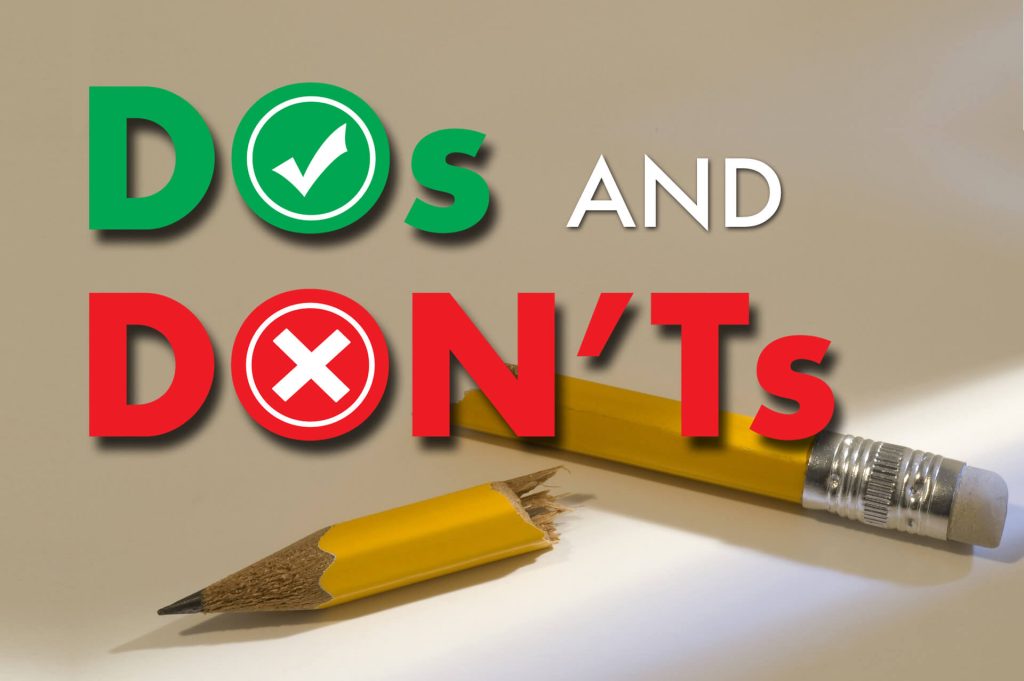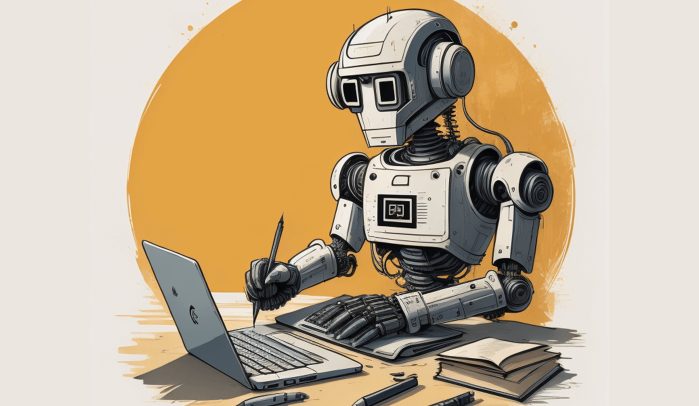UPDATED JULY 16, 2024
The image above was created by AI
I used a free AI text-to-image generator to create the images for this post. Can you tell?
My text prompt for the header image was ‘Robot writer writing’ — because seemingly it didn’t understand ‘AI writer writing’.
And it came up with this: a robot writing on a laptop keyboard with a pencil. For any other post this wouldn’t have been usable, but for this it was perfect. Because while AI might seem vaguely human, it doesn’t always think like a human and it often has difficulty joining up the dots.
AI writers are just as bad
I’ve tried out several AI writers in the last few years and found them all to be oversold and underwhelming.
What really bothers me about AI is that it’s marketed as something that will do everything a copywriter does, but faster, cheaper and without too much prompting. And, as I’m about to show you, it won’t.
With ChatGPT it might seem like we’ve turned a corner. This AI actually has its uses and I’ve even been using it myself. But while it might talk like a human, it still can’t write like one. And, in this article, I’ll give you 17 reasons why.
19 Notable AI copywriting risks
Here are 17 reasons why AI shouldn’t be writing your business copy. Some of which come from my own experiences with AI, but most of which come from the horse’s mouth: ChatGPT-4 itself. Neigh way! Yes way!
And while some of these were no surprise at all, some were real eye-openers — even for me.
1. AI lacks the human touch
Well, duh, obviously — because it’s not human!
AI will never have a human experience or opinion of its own to share. It can only regurgitate the experiences and opinions of actual humans. That’s actually quite sad… for the AI. But what does it mean for your copy?
As ChatGPT tells me, AI will struggle to infuse your copy with human experience, emotions, creativity and intuition. It doesn’t understand human values and isn’t always capable of capturing or conveying emotions effectively.
This is a problem because emotion is incredibly important if you want to sell. Harvard Business School professor, Gerald Zaltman says that 95 percent of our purchase decision-making takes place in the subconscious mind, which means it’s more emotional than logical.
AI can’t tap into those emotions, so it won’t give you the selling power a human writer will. And it won’t make your copy feel personal, like a human writer will, so it won’t build the strong customer connections and relationships your business needs.
2. AI doesn’t research well
I’ve yet to find an AI writer that can research properly. It can’t recognise a quality source from a questionable one and when it can’t find the information it needs, it makes stuff up. I’ve found this in every one of my own experiments and it’s something more people need to be aware of.
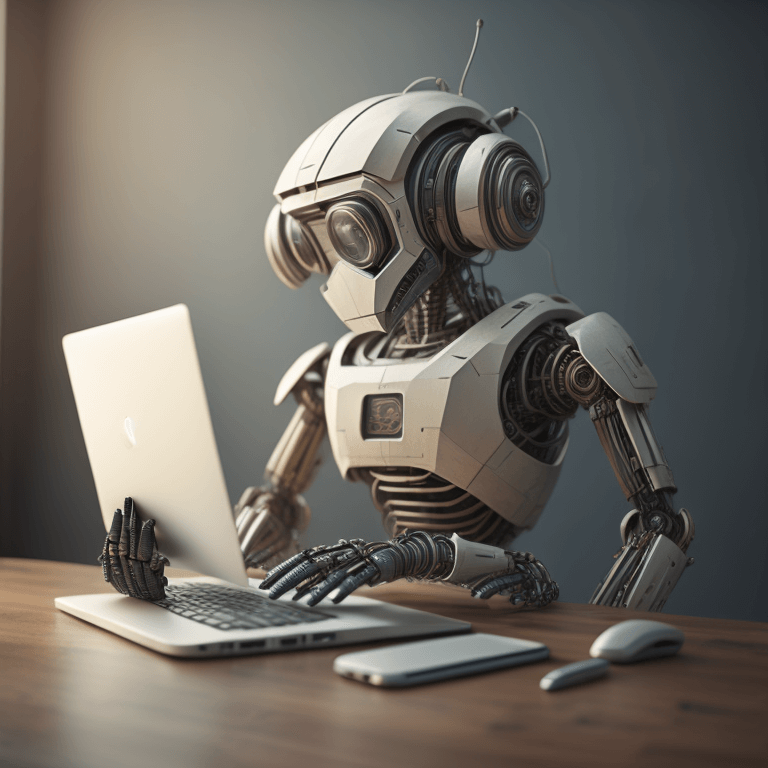

You might assume that ChatGPT is pulling its information from the internet, but that’s not the case. ChatGPT doesn’t have access to real-time information and can only access information from the dataset it was trained with. It’s current dataset goes up to September 2021, with some updates extending up to April 2023.
You can’t and shouldn’t trust it. Even if it gives you its sources, you need to check them to make sure they’re valid, credible and current. I’ve heard enough stories from people who found its source links went to 404 pages or non-existent websites to know this is a major flaw.
Even AI advocates recommend fact-checking the AI-written copy. What they don’t say is that when an AI is using wrong information, everything it writes, based on that information, will also be wrong.
And because AI doesn’t have access to real-time data, it can’t do proper SEO keyword research for you, either. This means your content probably won’t rank on Google.
3. AI is not a master of language
Our language is complex. It’s full of nuance and subtlety — and context is key. Your human audience will understand this — AI, not so much.
You see, AI isn’t well-versed in the complexities of our language. ChatGPT tells me it struggles to grasp nuance and subtlety — and that it may not understand idiomatic expression or cultural references.
So what does that mean for your copy?
It means AI might not understand the significance or implications of what it’s writing. Its messaging might be inaccurate or fail to resonate with your customers. And this lack of understanding can make your copy sound unnatural and confusing.
4. AI lacks industry-specific expertise
ChatGPT may have been trained using an expansive dataset, but it has its limitations. It tells me that one of its knowledge gaps is industry-specific expertise — and that this can lead to generic or misleading content.
Industry expertise is incredibly valuable when you’re creating content. People will read your content to learn from you, because you know more than they do.
AI doesn’t know what you know. It can’t research what you know. And it can only write what you know if you tell it exactly what to write.
I always encourage my clients to contribute to the content I’m writing for them, if they can. Their insight and understanding is beyond what I can research. It can elevate their content to a new level and make it more unique.
5. AI isn’t adaptable
AI doesn’t think for itself. It works using a series of algorithms, which means everything it creates follows a predetermined pattern.
This means it can’t adapt to new trends, changes in the market, evolving customer preferences or unexpected scenarios. The content it creates will be based on what it’s learned. This might be dated, completely wrong — or even made up, as often seems to be the case.
6. AI lacks originality and creativity
AI relies heavily on data and examples that already exist. Everything it ‘creates’ is regurgitated from someone else’s work. And none of it is original or unique — except maybe the stuff it makes up.


In the short-term, your AI-written content will be generic, cookie-cutter drivel — the same as everyone else’s AI-written content, with no spark of originality, personality or ingenuity to set it apart.
It won’t help you stand out from your competitors. It won’t make you memorable. It will just blend into all the other indiscernible noise.
But what about in the long-term?
At the moment, much of the original work AI draws from is created by humans, but what if AI content becomes prevalent and it starts to regurgitate its own work? An internet filled with copycat content and inevitable misinformation?
Do you really want to be contributing to that?
7. AI can’t understand feedback
The thought of giving AI feedback probably hadn’t even entered your head. I know it hadn’t occurred to me.
But ChatGPT tells me it can’t understand or implement the feedback you might give it. So if — sorry, when — it gets things wrong, you’ll either need to make the amendments yourself… or hire a human to do them.
Or you could cut out the AI all together and just hire a human to write the whole thing!
8. AI lacks cultural sensitivity and ethics
This was news to me. And it should be a concern for anyone who’s using AI to write about culturally sensitive issues.
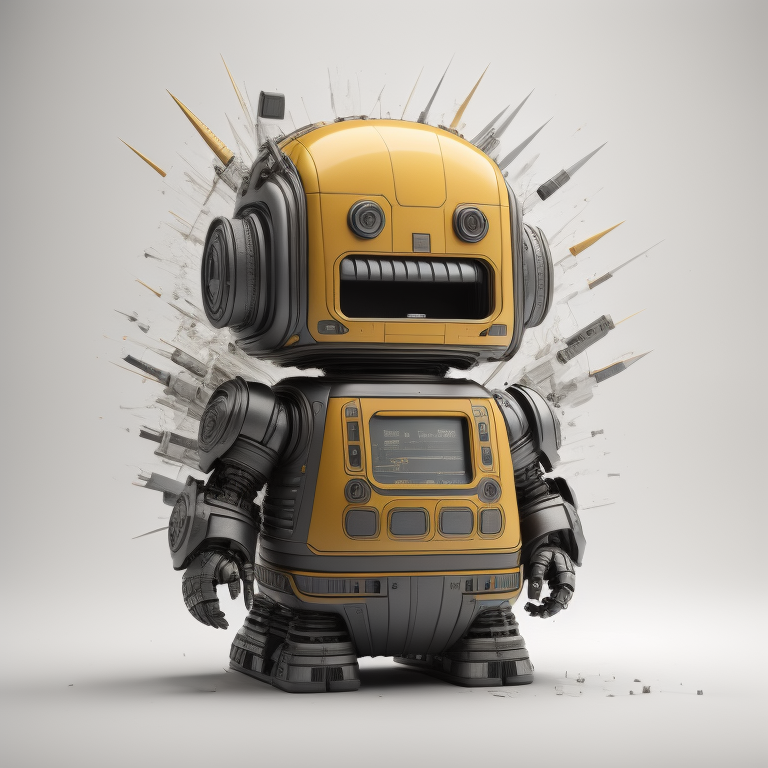

“AI may inadvertently produce copy that is culturally insensitive, offensive, or inappropriate, leading to potential reputational damage or legal issues.”
ChatGPT
And it’s not so hot on ethical considerations either.
“AI-generated copy may unintentionally cross ethical boundaries or violate privacy norms, leading to legal issues or public backlash.”
ChatGPT
So it doesn’t mean to, but it might decimate your business or get you sued. How comforting.
9. AI can’t craft arguments or handle objections
Two of the essential skills you need as a copywriter:
- To craft persuasive arguments as to why your ideal customers should buy your stuff
- To counter their objections to buying your stuff… with more compelling reasons to buy your stuff.
According to ChatGPT, AI ‘may struggle’ to do either of those things, because creative problem-solving isn’t its thing. If, by this point, you’re wondering what its thing actually is, you’re probably where I am.
If it can’t craft persuasive arguments or handle your ideal customers’ objections, it won’t sell — and neither will you.
10. AI can’t make strategic decisions
When crafting copy and content for your business, copywriters have to make strategic decisions to achieve the results you’re looking for. But AI writers don’t have the human intelligence, judgement or experience to do this.
Because they can only refer to their training, their general intelligence is limited. They don’t have a broad understanding of the world and they lack the abstract reasoning and common sense needed to make these decisions.
And, as if that wasn’t bad enough, they don’t have the ability to use ethical or human-centred values in the decision-making process either. Good to know.
What does this mean for your copy?
Well, it probably won’t do what it’s supposed to or get the results you need. Because the AI doesn’t understand why it’s writing what it’s writing. This means it doesn’t write it with any particular strategy, objective or outcome in mind.
11. AI can’t replicate your brand voice
Your brand should have its own unique tone of voice. Having a distinctive voice helps to personify your brand and attract your ideal customers.
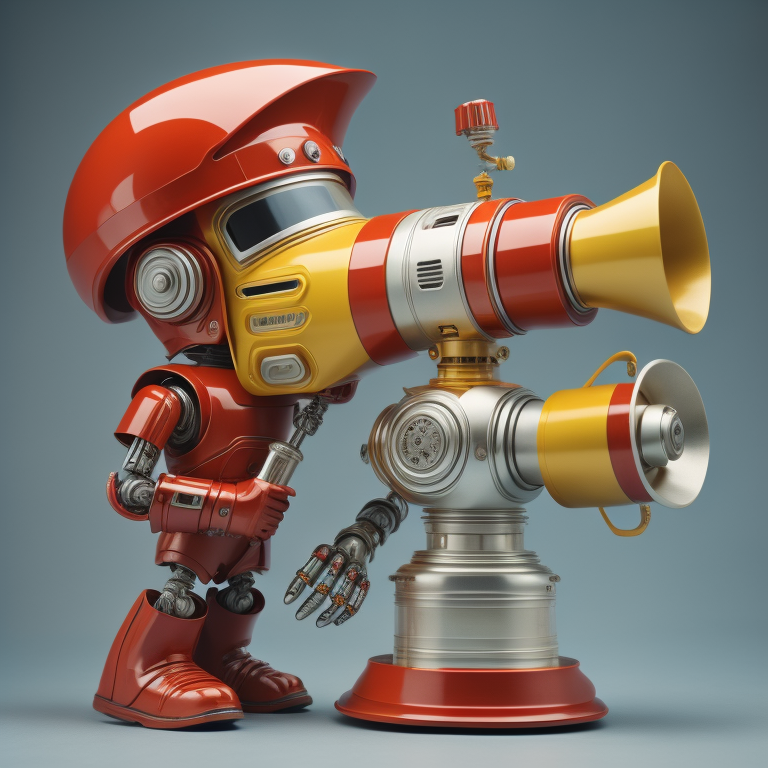

Human copywriters are chameleons when it comes to tone of voice and will change their style for each brand they write for. Some copywriters will even create brand voice guidelines for you, so that everyone who writes for your brand will sound consistent.
And AI? Well, that ‘may produce copy that deviates from the desired style or brand identity’. You can give it style cues — I know this from experience — but your cues will simply follow an algorithm. This means your copy will sound like every other brand that’s asked for copy in that style. How original.
In the case of ChatGPT, this is because it’s working from a dataset that doesn’t include reference material from your brand. But more generally, it will be because AI can’t follow such a specific set of rules.
12. AI writing lacks authenticity
“AI-generated copy can come across as robotic and lacks the genuine authenticity that human-written copy can provide.”
ChatGPT
So robot-generated copy can sound… robotic? Surely not. I mean, it sounds so human, doesn’t it? At least that’s what everyone seems to be saying.
But does it really sound human? Why — because it can put a few words together in an order that makes sense? Because it can sound conversational?
Believe me, I’ve seen AI-written content out in the wild and I could spot it at 20 paces. It wasn’t pleasant to read and it didn’t reflect well on the company that published it.
Even if you think AI sounds human, it still doesn’t sound like you. And it’s you your ideal customers want to get to know when they read your copy.
A human copywriter will make your copy sound like the best version of you — so it comes across as genuine.
13. AI lacks storytelling abilities
Even in a crowded market, a good brand story has the power to set you apart and help you build a loyal following.
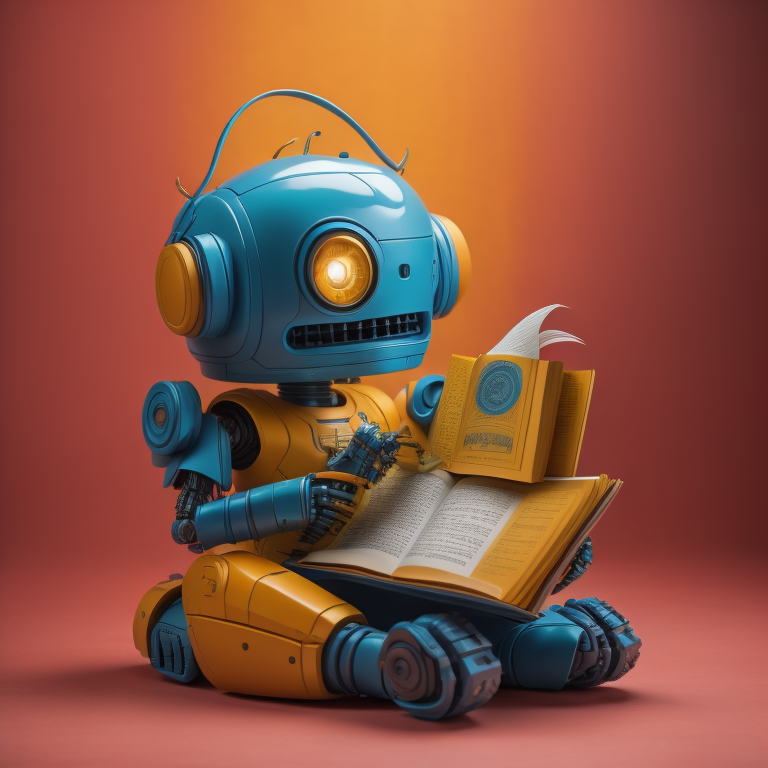

A human copywriter can do that for you. In fact, there are even copywriters who specialise in creating engaging and powerful brand stories.
And AI? Apparently, storytelling is yet another thing it struggles with, so don’t expect it to write a captivating brand story for you any time soon.
14. AI makes unpredictable errors
“AI algorithms can make mistakes or generate unexpected outputs, which can be embarrassing or detrimental to the brand’s reputation if not carefully monitored.”
ChatGPT
Do I need to say more on that? No, I don’t think I do.
15. AI may plagiarise existing content
“AI may unintentionally produce content that resembles existing works too closely, raising potential plagiarism concerns.”
ChatGPT
Huh? So why is that?
X user, Chris Alvino may have the answer. Chris is a computer scientist who’s spent over a decade studying and programming AI — and who created an X thread on all the things he hates about it. He says:
“The massive training sets required to train them cannot be obtained legally so they are stealing huge amounts of content w/o consent, all in the name of ‘innovation’.”
Chris Alvino, on X
This should come as no surprise, seeing as AI has been trained using existing works. But plagiarism is serious and it should be a worry to anyone using AI to create their content.
16. AI won’t work with you
Using AI is a one-way street. I’ve already explained in point 7 how it doesn’t understand feedback, but that’s only half the story.
You see, working with a human copywriter is collaborative and communicative.
During the process, we’ll:
- Talk to you and understand why you need the project
- Get to understand you, your business and your ideal customers
- Use our expertise to come up with creative ideas
- Explain the reasoning behind the copy we’ve written
- Challenge your feedback if we think it’s not going to work for you.
It’s safe to say you won’t get any of this from an AI writer — and your copy will be much the worse for it.
17. AI can only work with human input
AI still needs a lot of human prompting and can only write what you tell it to.
The question is, do you know what to tell it?
Human copywriters spend much more of their time researching what to write than actually writing it. We’ll research your ideal customers and what they want, so we know our copy is delivering for them — and, in turn, delivering for you.
Without that in-depth research and understanding behind it, your copy will miss the mark and fail to achieve the results you need.
18. AI can’t work independently
After all the things I’ve covered in this article, this should come as no surprise.
AI needs a human moderator.
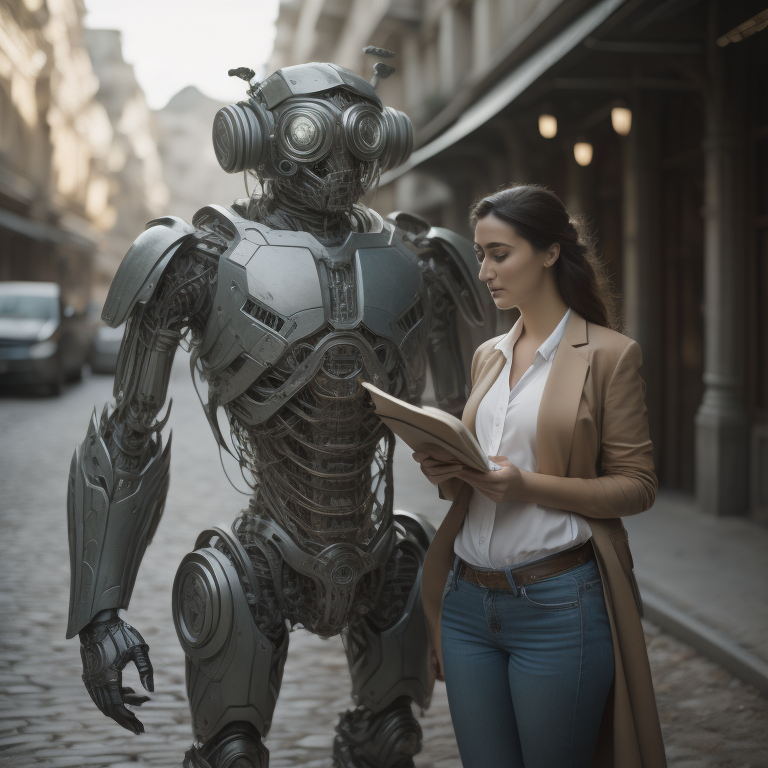

“AI-generated copy still requires human oversight to ensure accuracy, brand alignment, and compliance with legal and regulatory standards.”
ChatGPT
In other words, you can’t leave it to its own devices.
What it’s ‘written’ will need humanising, fact-checking and rebranding in case it embarrasses you, destroys your business or gets you sued or prosecuted.
And who should you ask to do the fact-checking and rectify its mistakes?
I hope you’re not thinking of asking a copywriter.
Because any decent copywriter will take one look at that rambling, robotic-sounding, fabricated mess and tell you to scrap it and start again.
19. AI can get you penalised by Google
In March 2024, Google announced a clampdown on spammy and low-quality content. This was followed by its spam update in June 2024.
Following this update, businesses that had published lots of unmoderated AI content on their blogs found their websites had been clobbered by the algorithm. Some had slipped down the rankings, but others had disappeared from Google completely.
So what’s Google’s position on AI-written content?
Well, it seems Google has recognised that there can be value in AI-written content, so it hasn’t outlawed it completely. But it has introduced some ground rules.
You can’t just publish whatever your AI produces — because it could be wrong.
Before you publish AI-written content, you should spend some time:
- Adding your own original material
- Moderating and fact-checking
- Humanising and rebranding
- Running plagiarism checks
- Proofreading and editing.
In other words, making the content as unique and valuable as you possibly can to give it the best possible chance of ranking — like a human copywriter would.
In conclusion
AI can string any old words together in a vaguely coherent sentence — but they may not be factual, effective or right for your brand. If that’s good enough for you, fill your boots. And I hope it works out for you — genuinely.
BUT — and you knew there’d be a but — what AI can’t do, is all the other stuff that will make your copy amazing, effective and original. Like…
Strategy
Devising your strategy involves looking at what you want to accomplish long-term and the tactics we’re going to use to achieve that for you.
Research
As any good copywriter will tell you, up to 80% of effective copywriting and content writing is research. Getting to know your industry, your brand, your competitors and your ideal customers to make sure your copy is hitting the mark.
Positioning
Positioning is working out where your brand sits in the market. Having established this, we can find ways to differentiate your brand, make it unique and give you a competitive advantage.
Creative ideas
Great copy is always preceded by great ideas and imagination. That might be creating a captivating brand story, deciding how your brand will sound or developing a creative and original ad campaign.
Do you see the value a human copywriter could bring to your business?
I mean, it will cost you a lot more than free and take a lot longer than a few seconds — but that time and money will be totally, totally worth it. And it will give your brand what no AI can: humanity. The ability to connect with your human audience on a human level.
I’m Jenny Lucas, a freelance copywriter and content writer based in Leicester, UK.
I make my living writing words that personify brands and connect them with their ideal customers.
And I specialise in SEO copy for websites and blog posts that rank organically on Google.
To find out more about my services and see samples of my work, head over to my main website.
To learn more about me or what it’s like to work with me, check out my blog
Or follow this link to get in touch and talk to me about your project.


You might also like…




